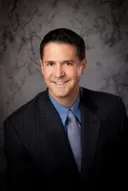Why Every Physician Needs a Side Hustle

iqoncept/123RF.com
The track to becoming a physician is clearly defined. College - med school - residency - job. Period.
Lacking in the process is a clear understanding of the business world. Some physicians have an intuitive sense, but most, I propose, do not. For those who have not sat in the boardroom or been part of c suite conversations, the decision-making is in sharp contrast to medical cognitive processes.
Combine exponential and abundant technological advances with business decisions, and the average physician will find him/herself in a precarious position. We are all ripe for disruption.
Doubt that sentiment? Read on.
Landscape
Healthcare in the US is too expensive and does not deliver results. While this country has incredible institutions and physicians, overall we pale in comparison to global standards - #37 by The WHO ranking.
Pride and tradition attempt to command status, but metrics and data science reveal something more substantial.
There are many areas of medicine better accomplished with accuracy, efficiency, and economic advantages.
Physicians are expensive. We make mistakes. Patients often don't know how to navigate the alphabet soup of M.D, D.O., N.P, P.A., etc. Who can blame them? Administrators are tasked with profitability, and care is being shifted to mid-level providers. One state recently passed an amendment removing requirements for midlevel prover physician supervision. Colleagues joke about retraining to become a midlevel because the pay is better and the responsibility less.
Like it or not, there are companies in existence seeking to commoditize healthcare. While physicians still earn a decent living in the US, other countries see it differently. Also, telemedicine has become essential in providing access to care, but the compensation is racing to the bottom. When I took my first telemedicine consult around six years ago, each case paid $50-75. Present day, some companies offer a paltry $10-14. Most Telemed work is 1099, and after the self-employment and other taxes, the per case rate is plain sad.
This piece is not designed to be a doomsday prophecy, but to spark an awakening for those hoping to weather the storm by ignoring the shifting climate.
Fortunately, the opportunities are vast for those willing to disrupt themselves. The time for a side hustle has never been better nor the options as plentiful.
While your driving forces may differ, there are a few more reasons to start a side hustle.
Stimulation
The intellectual stimulation of science and the body are potent drivers of discovery. Many physicians possess an innate curiosity and insatiable thirst to learn more. It has been drilled into us from the early stages of training. Always be curious. Keep learning. Improving lives depends on it.
Pursuing a side hustle opens the floodgates of mental stimulation. Taking on a new challenge, perhaps in something foreign or outside the comfort zone, is a perfect way to breathe life back into a career.
Technology companies need your expertise. I’m not mandating becoming a coder, but accepting the challenge to learn a bit will prove valuable in the future.
Reinvention
The tools at our disposal have made global collaboration easy and have removed geographic limits. The option and opportunity to collaborate and reinvent oneself is at hand. What you pursue is not open for debate. You get to decide without any department head approval. The freedom to explore as you did as a child is exhilarating. While medical knowledge is a unique advantage, many chose to pursue a tangential or completely unrelated venture. Some have left medicine altogether and never looked back. The time to begin is now.
Journey
Doors will open as one pushes deeper in a new direction. The options and alternatives will multiply. The universe conspires to help the creative. As your interest becomes known, new avenues of collaboration will appear. Make your intentions known. Share updates on your progress widely. LinkedIn is a perfect venue, and your inbox will reward you with opportunities. Upwork offers a platform to test your new skills. Take advantage of the tools available.
Disruption
You must prepare for disruption. AI, machine learning, VR, AR, and yet undiscovered technologies will change the way you practice and alter patient expectations. AI has proven superior to physicians in a subset of specific skills. See the radiology links below.
Embrace change. Approach new technologies with wonder and an open mind. Push skepticism aside. Change is inevitable.
The question is: Will you evolve to survive the coming disruption or resign to fade out quietly?
Read On:
How to start your side hustle: https://www.amazon.com/gp/product/1524758841/ref=as_li_qf_asin_il_tl
Alternate careers for physicians: https://www.hospitalrecruiting.com/blog/5257/alternative-careers-and-side-hustles-for-physicians/
Medical disruption in action: https://www.fastcompany.com/90326445/this-free-ai-reads-x-rays-as-well-as-doctors
What physicians earn in other countries: https://economix.blogs.nytimes.com/2009/07/15/how-much-do-doctors-in-other-countries-make/
Career disruption and reinvention: https://www.aao.org/eyenet/article/career-disruption-can-you-reinvent-yourself
Related Posts
